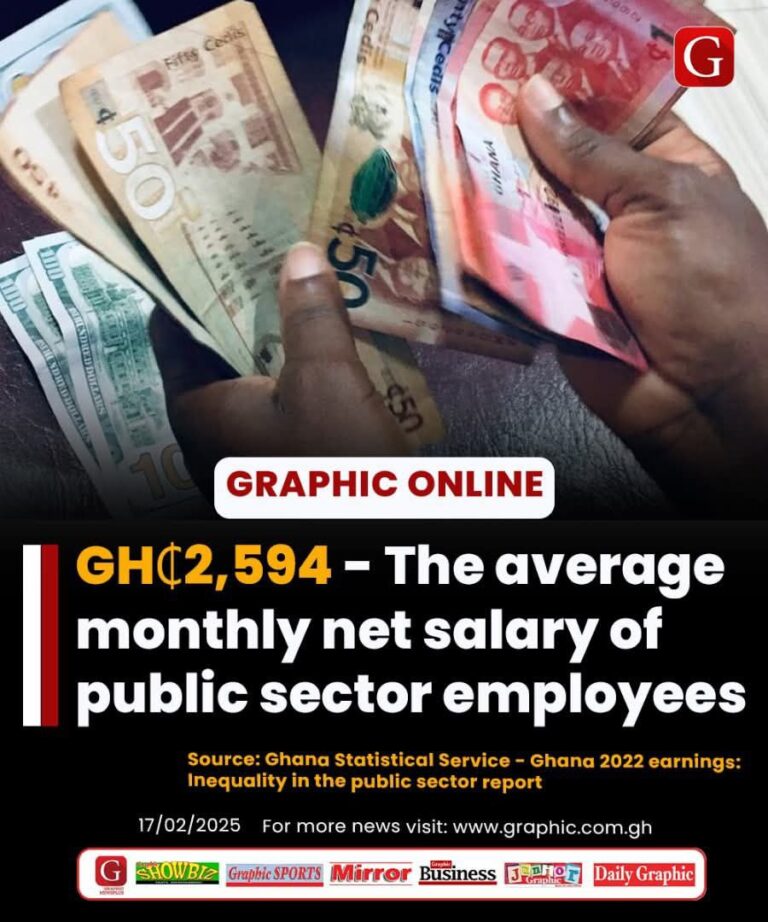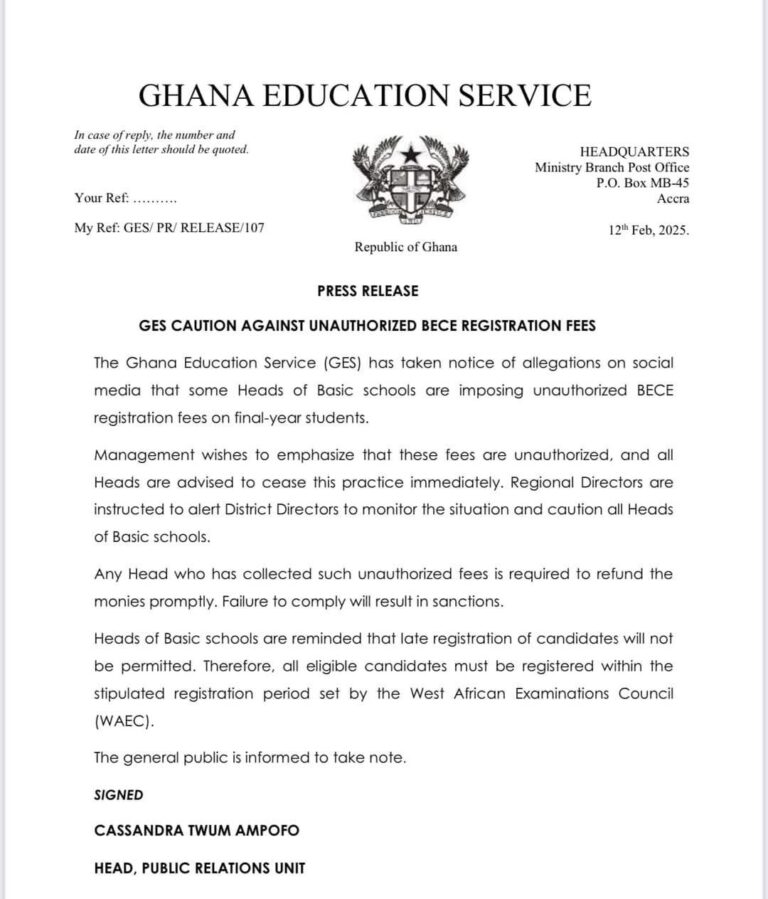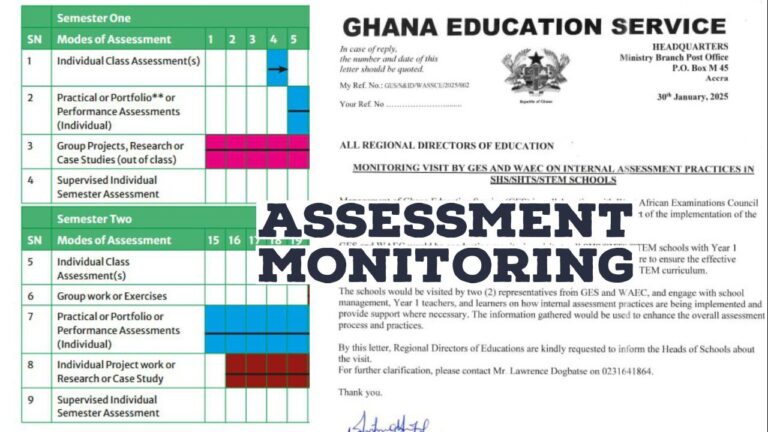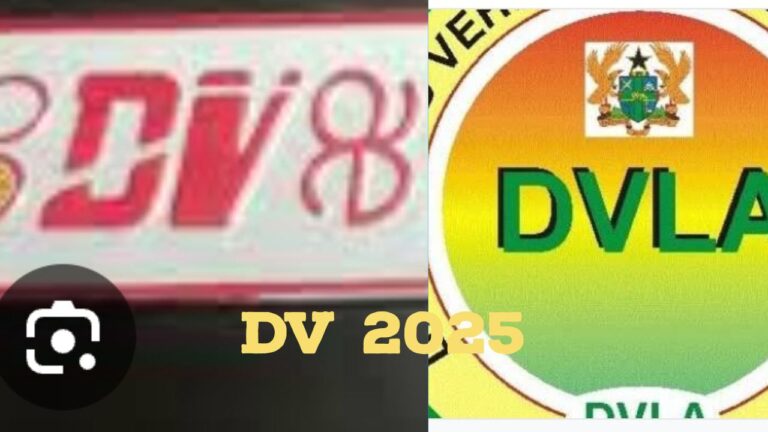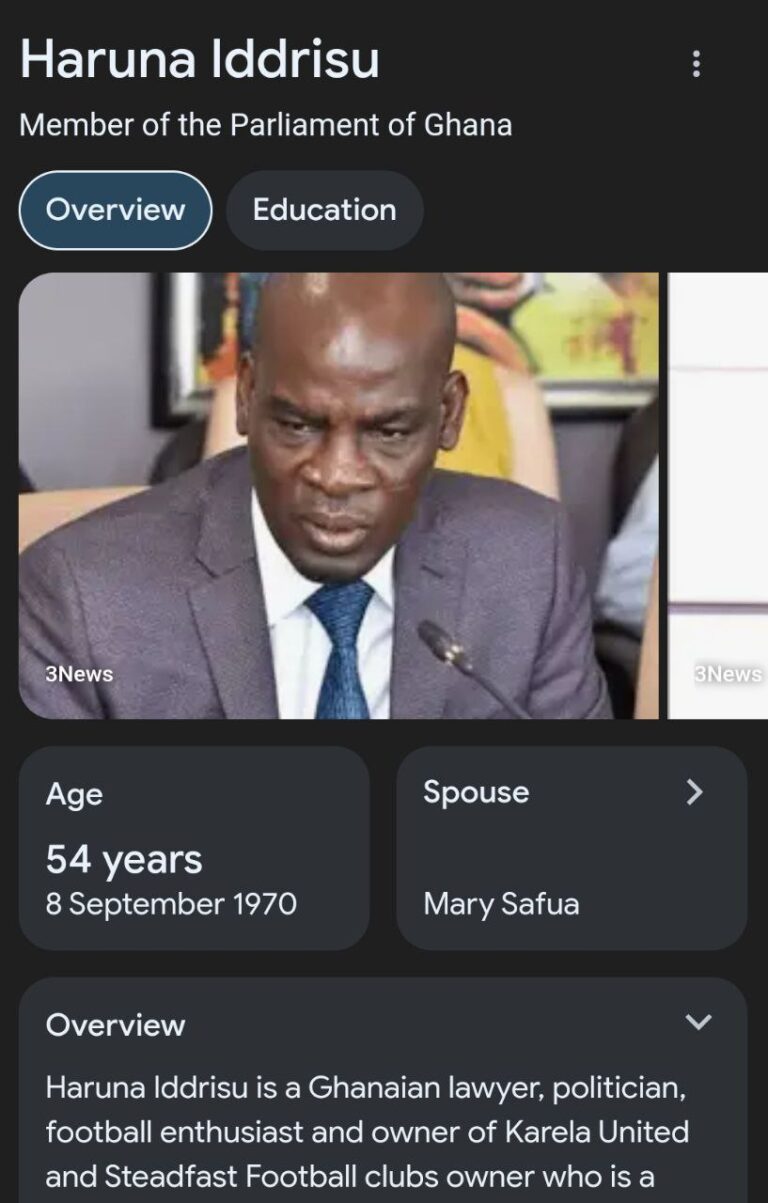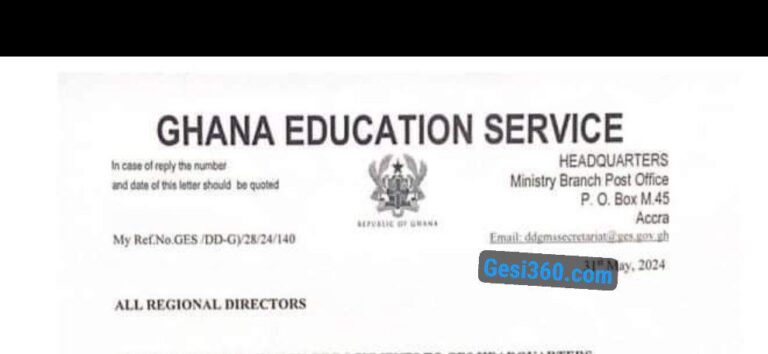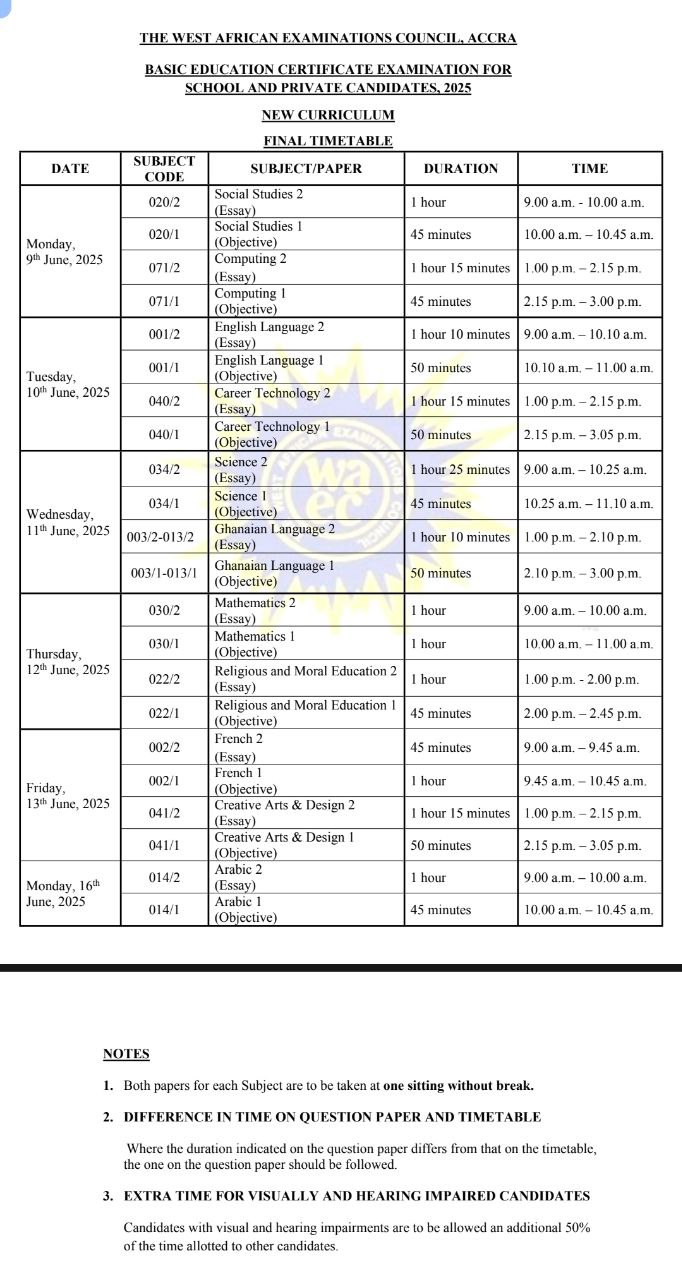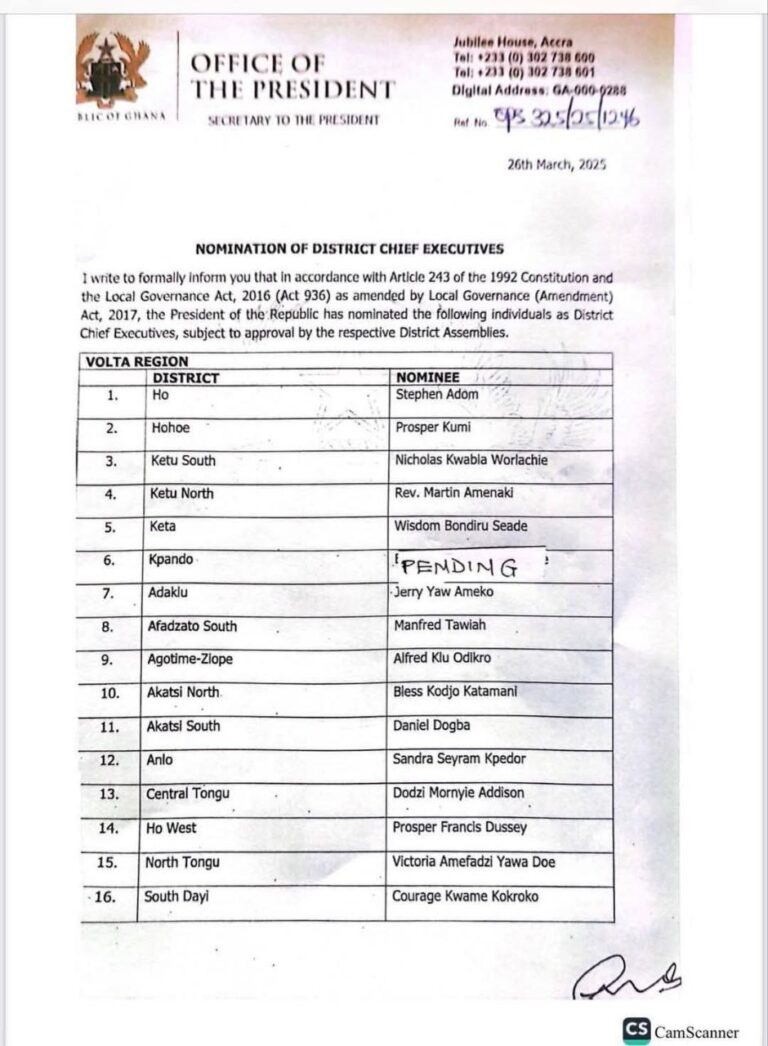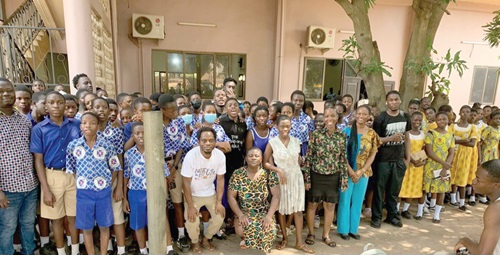The Stark Reality of Public Sector Salaries in Ghana: Every five public sector employees earn less than...
Blog
OSP Charges Six Over Payroll Fraud and Corruption The Office of the Special Prosecutor (OSP) has brought...
PRESS RELEASE GES CAUTION AGAINST UNAUTHORIZED BECE REGISTRATION FEES The Ghana Education Service (GES) has taken notice...
New Curriculum Assessment Methods and Monitoring Visits by GES and WAEC The Ghana Education Service (GES) and...
Woman Helps Husband Kill Her Boyfriend to Fake Husband’s Death and Claim Insurance Money South Africa –...
The Driver and Vehicle Licensing Authority (DVLA) has officially released the 2025 DV plates across all its...
Businessman Attempted to Pay for Ministerial Nominee’s Approval – Mahama Ayariga Reveals as Barker-Vormawor’s has been summoned...
ICE Deportation Updates: 1.4 Million Immigrants Face Deportation from the U.S. The U.S. Immigration and Customs Enforcement...
Influence 20% public budget allocation to Education Ministry – Eduwatch to Haruna Iddrisu Kofi Asare, the Executive...
Request for Update of Records by GES Staff REQUEST FOR UPDATE OF RECORDS ON GHANA EDUCATION SERVICE...

